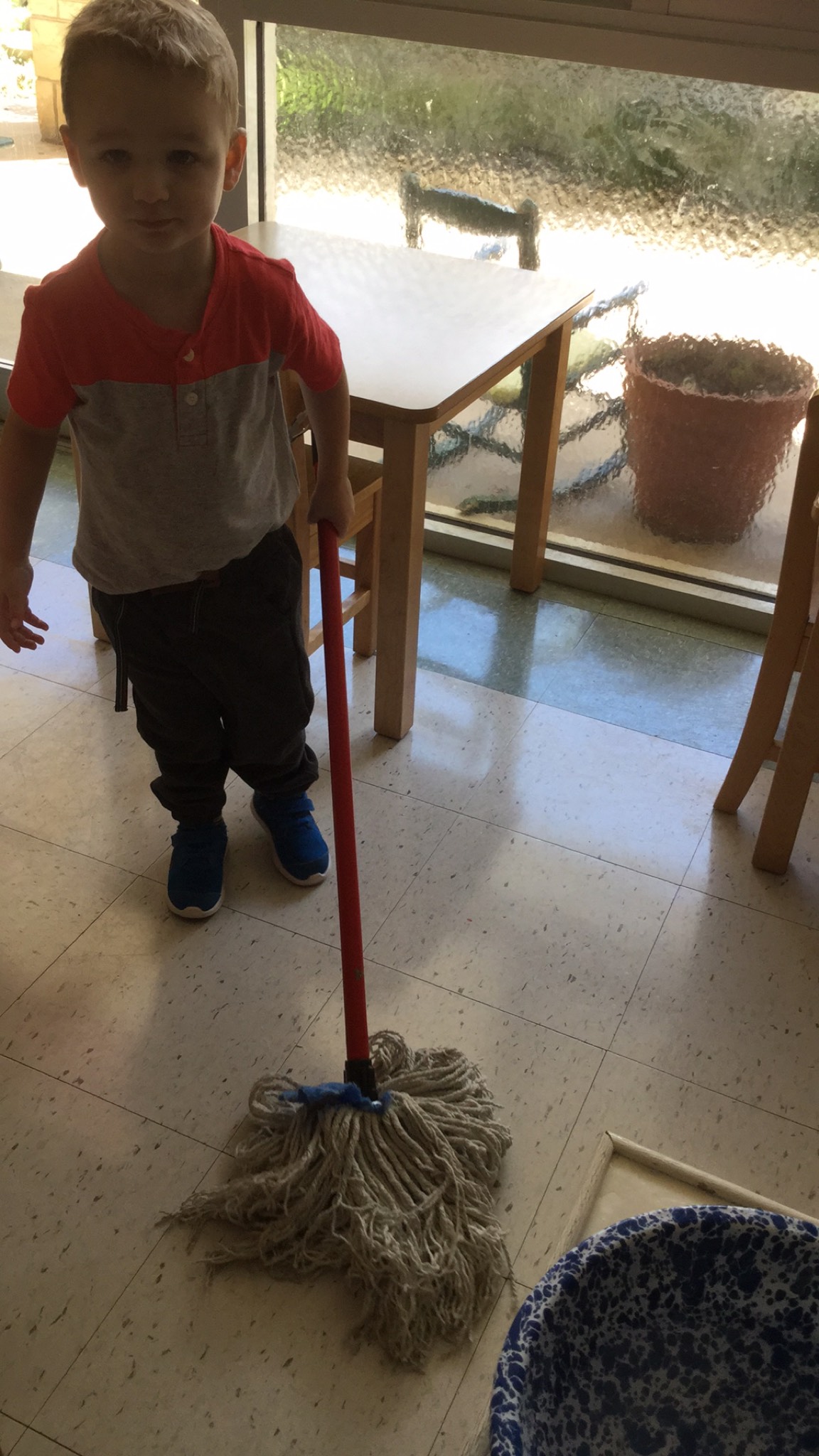Today’s blog comes to us from Ms. Alissa, for whom modeling is a core component of the guide’s work within the Montessori classroom.
In the Montessori classroom, we model what we want the children to do. This sounds simple and obvious, we show the children through lessons how to use the materials and how to carry out exercises. We also model grace and courtesy, respectful communication, and how we want children to move and speak in the classroom. We model drawing and handwriting and sewing, dish washing, sweeping, and helping others.

Young children are in what Dr. Montessori identified as the absorbent mind stage. She observed that children absorb their environments, and everything in them, and that their experiences of their early environments come to shape who they are.
In the Montessori classroom, the adults in the classroom are seen as part of the environment, and of course this is true of the home environment as well.
It is for these reasons that modeling in the Montessori classroom is seen as so important. We strive to embody that which we want the children in our environment to become; purposeful, soft-spoken, joyful in our work, considerate, and kind. If we want our children in the classroom to carry only one thing at a time, the adults in the classroom are expected to only carry one thing at a time.

At home, if we are wanting children to sit down to eat dinner, it would be important for us to not (ahem) eat over the kitchen sink, but instead to sit at the table to eat.
This can feel intimidating, especially as parents, until we dig a little deeper to think about other traits we might want for our children; being forgiving, willing to make and learn from our mistakes, and be open minded.
Modeling is important here too, forgiving ourselves, seeing our mistakes as useful and non-threatening, and being open to growth and learning. If we trust that our own imperfections can serve to empower our children, and embrace them with a sense of grace and humor, then we can forgive ourselves more readily, and relax into our role of role model and guide for our children.

